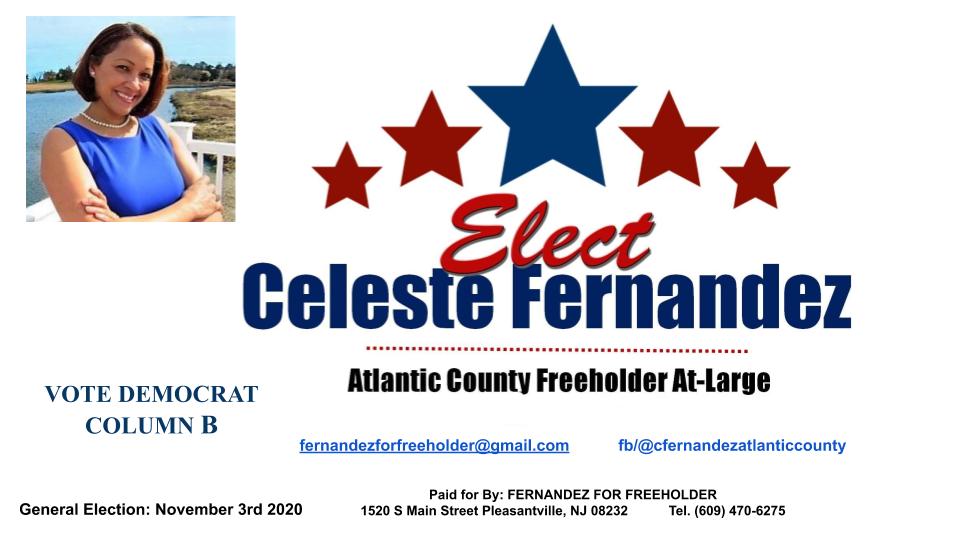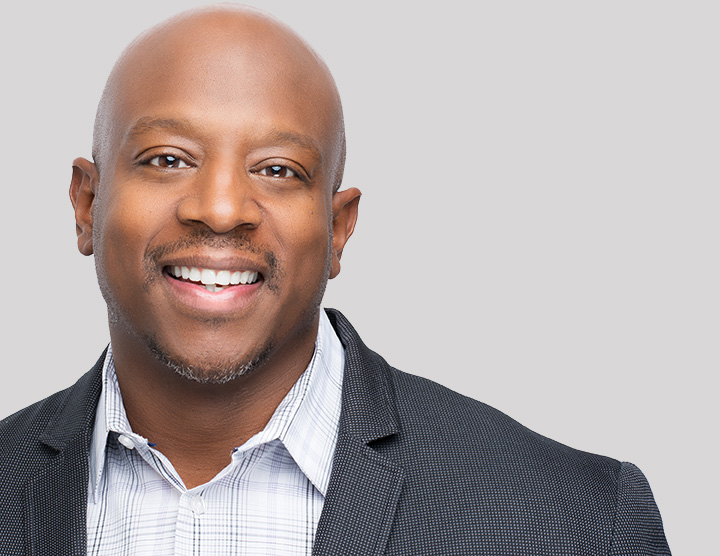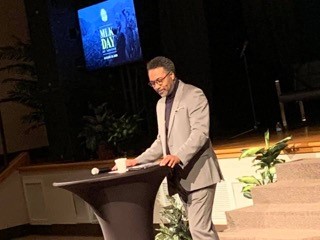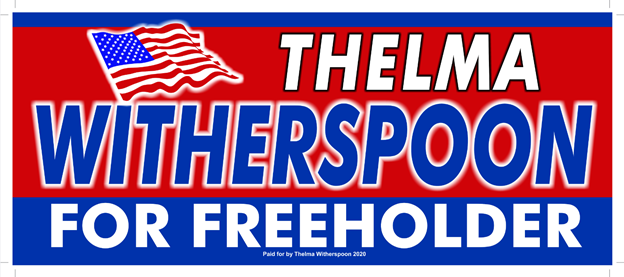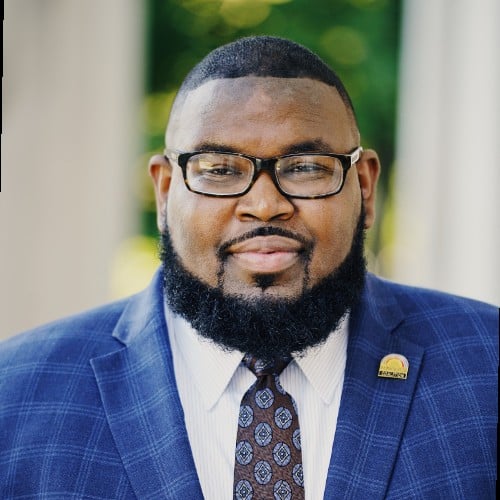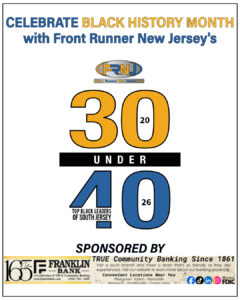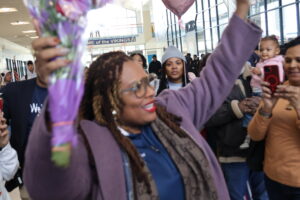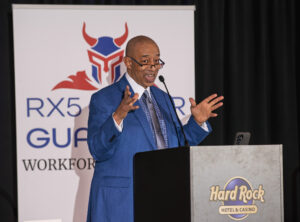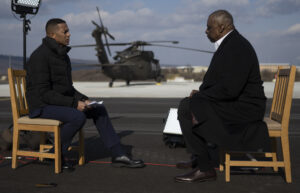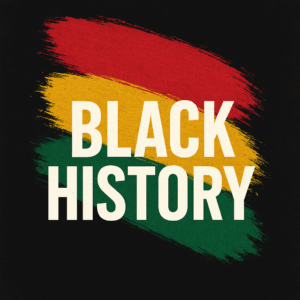South Jersey Black Churches Ready to Impact General Election
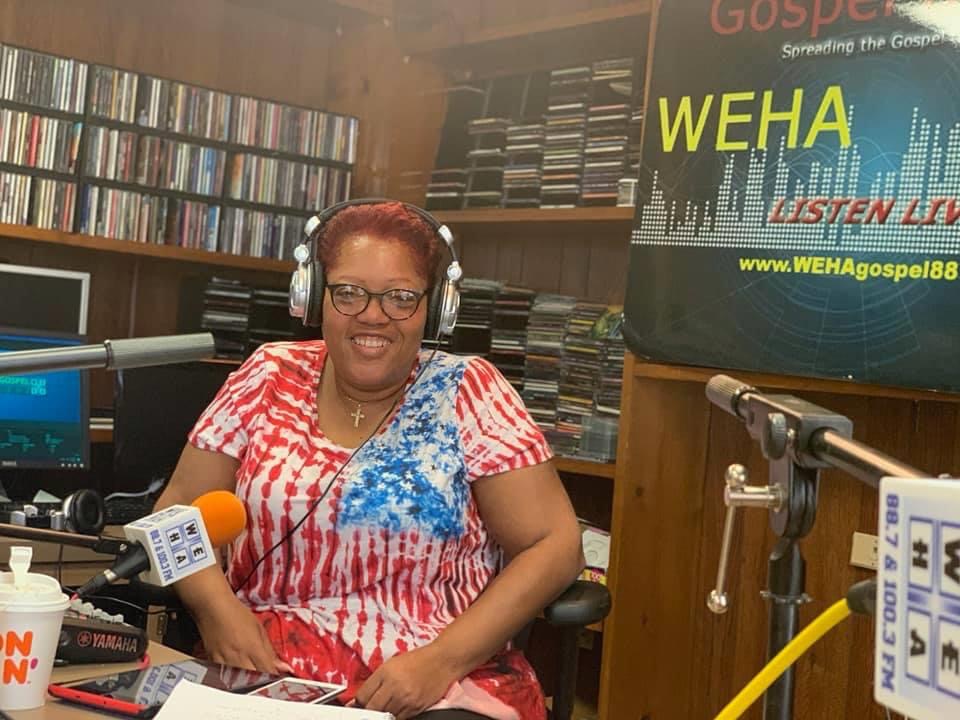
Thelma Witherspoon at WEHA-FM in Atlantic City for her radio show. Photo courtesy of Thelma Witherspoon.
By Clyde Hughes | AC JosepH Media
EDITOR’S NOTE: This story was produced as part of the 2020 Election Reporting Fellowship with NJ ethnic and community media organized by the Center for Cooperative Media at Montclair State University.
ATLANTIC CITY — Dr. Thelma Witherspoon grew up in an environment where the Black church, activism and voting went hand-in-hand as the daughter of parents who founded the Westminister Christian Worship Center in Atlantic City more than four decades ago.
Witherspoon, who is running for an Atlantic County freeholder seat, said it was always second nature for her to be involved with the church and being politically active. The Black church has a long history of political activism, from Reconstruction, the Civil Rights Movement, to the “Souls to the Polls” movement during President Barack Obama’s election runs.
In South Jersey, faith leaders have taken up the mantle again, refusing to be dissuaded by the divisiveness of the 2020 presidential campaign. Witherspoon, who also does a regular Christian-oriented talk show on WEHA-FM, won the past election to the Atlantic City Board of Education.
“Our church has always been civic-minded and encouraging people to get out and vote,” said Witherspoon who is pastor at Westminister, which has been guided by Bishop Luke and Pastor Juanita Witherspoon for decades. “There is a rich history and culture in the church and in my family. Right now, we are encouraging people who are voting, whether in-person or with the mail-in ballots.”
Whether it’s talking about issues from the pulpit, answering questions about mail-in ballots or holding get-out-the-vote rallies, South Jersey Black churches appear to be engaged in this election at a high level.
Pride in Legacy
For Rev. Ralph Graves, at Millville’s Cornerstone Community Church, his congregation started months ago assisting locals with the U.S. Census. That naturally bled over into voter registration and now calls to vote via mail or in person.
“I take a huge sense of pride knowing that whole movement in this country started from activism in the Black Church,” said Graves, who is also an accomplished author and keynote speaker. “We have some young people now who are a couple of generations removed from the Civil Rights Movement, so we bring that up and talk about it. We don’t want to rehash old wounds, but they need to know that people made great sacrifices for them to have this right. It’s important for our democracy for them to take part.”
Reminding a Generation
Rev. Kevin Brown, pastor of The Perfecting Church in Sewell, said when he started preaching at 22, it was some of his mentors and elders who sat him down and reminded him about the church’s historical role in political activism. Brown said his church used its food pantry during the coronavirus pandemic to get voter registration information out into the community.
“We inherited so much fruit from the past generation that he had lost the sense of urgency, the sense of preciousness stewarding over that gift of responsibility,” Brown said.
“Currently, we’ve become so politically polarized and divisive in our country, where the clergy has taken on another role as being peacemakers, real peacemakers, when it comes to racial reconciliation,” Brown said.
Brown said he has found himself reaching out to white faith leaders and those of other faiths to not only encourage voting, but to work together regardless of the outcome. He said he is also working with the Multi-Faith Network nationwide to address issues of racial reconciliation among various religions.
“We want to make sure that no matter where we stand, it’s the kingdom of God that always informs us how we treat one another and steward over our responsibilities in the community,” Brown said.
‘In Our DNA’
Rev. Bryan McAllister, the new pastor of Heard AME Church of Roselle, said his position on Black liberation and theology go in concert together.
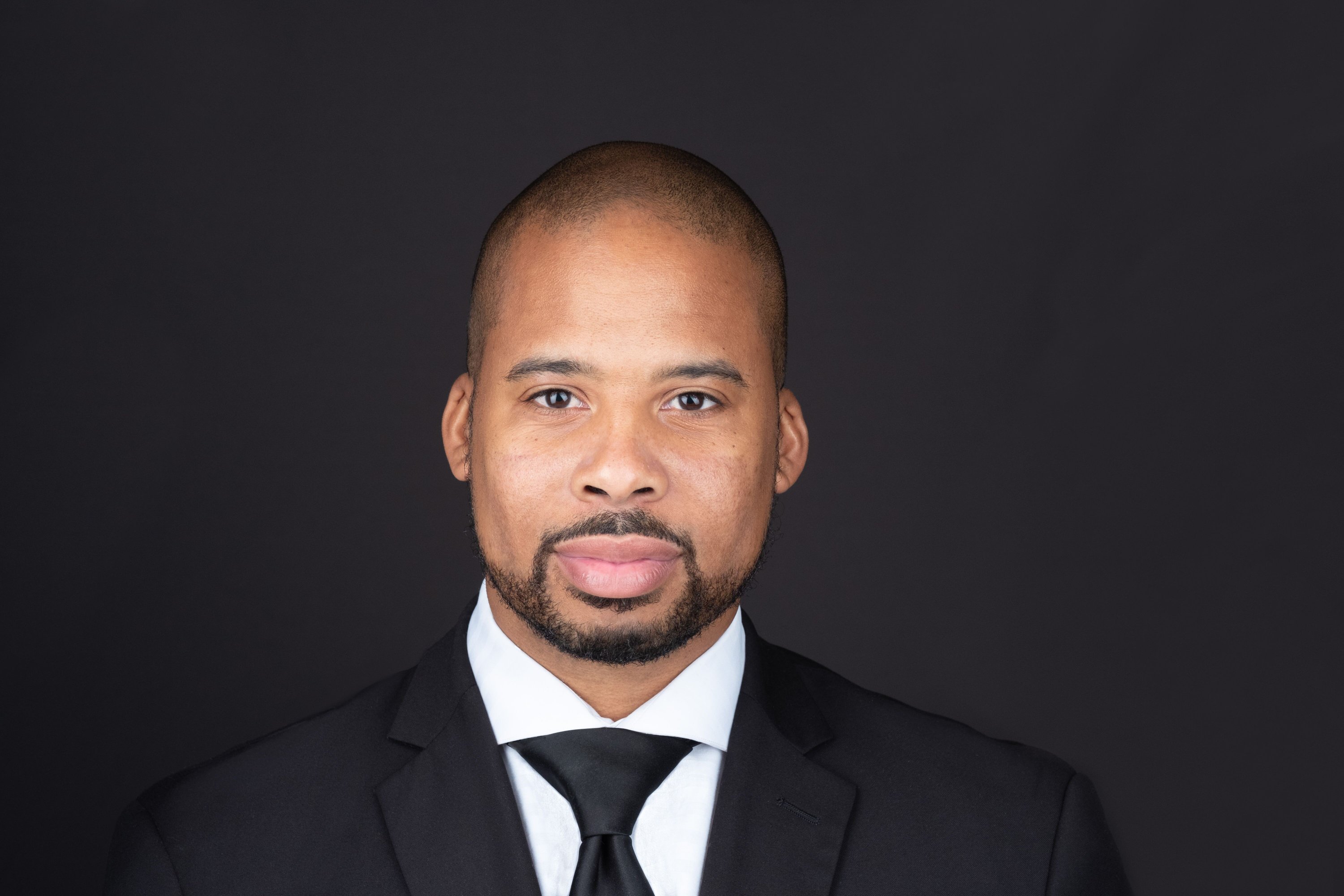
“Being the voice for the voiceless and speaking truth to power is part of our DNA,” said McAllister, who was appointed to Heard AME Church July 12. “We understand the voice and the power the church holds in voting. Voting, though, is only a piece of the pie when you’re in pursuit of justice through a faith lens.”
McAllister, who serves as director of Black Church Affairs at the influential Woodbury-based faith organization Salvation and Social Justice, also used its food distribution services to connect users with voter registration information and encourage them to vote. The church has made efforts to get out to the vote rallies as well.
Cassius Rudolph, pastor of Saints Memorial Community Church in Willingboro, said he is concerned about voter suppression efforts like the technicalities with mail-in balloting and long lines at polling locations, pointing to Texas where Gov. Gregg Abbott limited mail-in drop off boxes to one spot per county. Despite that, some of the most populous counties in the country, where millions live and vote, have large populations of Blacks and Latinos.
“Sadly, we’ve been dealing with voter suppression since the nation’s inception,” said Rudolph, who will celebrate his one-year anniversary at Saints Memorial in November. “There are 13 drop boxes in Burlington County. I don’t think the [Black church’s] role in our community has changed. We’ve done voter registration and got out the vote rallies and will continue to encourage people to vote.”
Protesting Not Enough
While racial justice protests around the country have sparked the kind of activism that may suggest a renewal of social consciousness afoot, Witherspoon said, “It’s not enough to protest.”
“He continued, “A lot of people were protesting this summer and there’s nothing wrong with peacefully protesting. But if you don’t put your vote behind it, then the protesting you’ve been doing has been in vain. You have to take it to the next level.”
Brown said beyond pushing an individual candidate, voters must look at issues that are of importance to them and their faith — and not just one, quoting the Bible’s Matthew, Chapter 25.
“I know we’ve been encouraged to only consider a candidate, particularly in the evangelical church, on whether they are pro-life or pro-choice,” Brown said. “That is too narrow of a lens to look at a candidate. We need to be concerned about how people feel about life from the womb to the tomb.
“Who do we believe will really reach to the margins and serve the margins? When you were naked, I clothed you. When you are hungry, I fed you. Paying attention to the policies around that and what administration will give us in the environment of that context,” Brown said.
For McAllister, his issue has been the Affordable Care Act and making sure people in his congregation and community continue to have access to much-needed health care. He did a video last week on the mandate and sees the issue of voting and keeping the ACA going tied together.
“I have stressed that it is extremely important to vote this year,” McAllister said. “There are efforts to suppress the Black vote because they don’t want our voice to be heard. It is up to us, the church, to make an intentional effort to organize to make sure our people cast their ballots and understand the seriousness of the time.”
Black churches have been doing that in African American communities around the country for a long time.
Follow Us Today On:
Note from AC JosepH Media: If you like this story and others posted on Front Runner New Jersey.com, lend us a hand so we can keep producing articles like these for New Jersey and the world to see. Click on SUPPORT FRNJ and make a contribution that will do directly in making more stories like this available. Thank you for reading.
